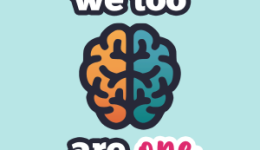Guest on The Quiet ADHD Club Podcast
I recently had the pleasure of appearing on a podcast for The Quiet ADHD Club, a Substack community created by Gabrielle Treanor for women with ADHD who don’t necessarily fit the loud, hyperactive stereotype sometimes associated with it.Gabrielle’s work speaks to women who are thoughtful, sensitive, empathetic and quietly exhausted from a lifetime of holding […]










